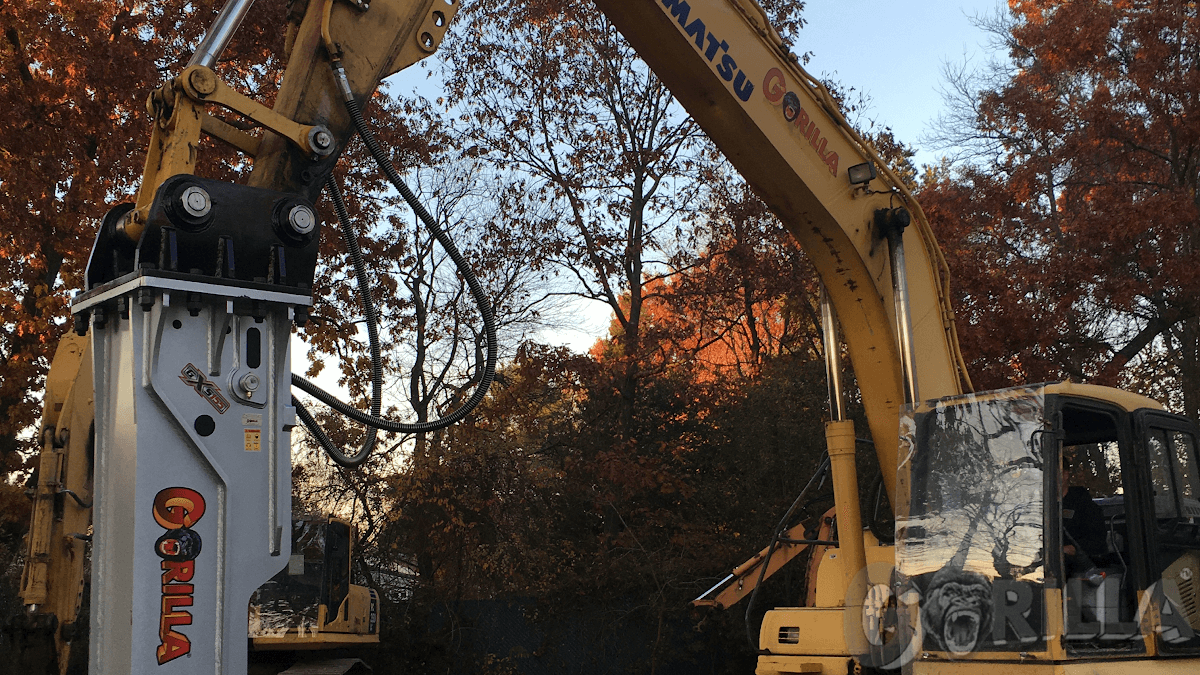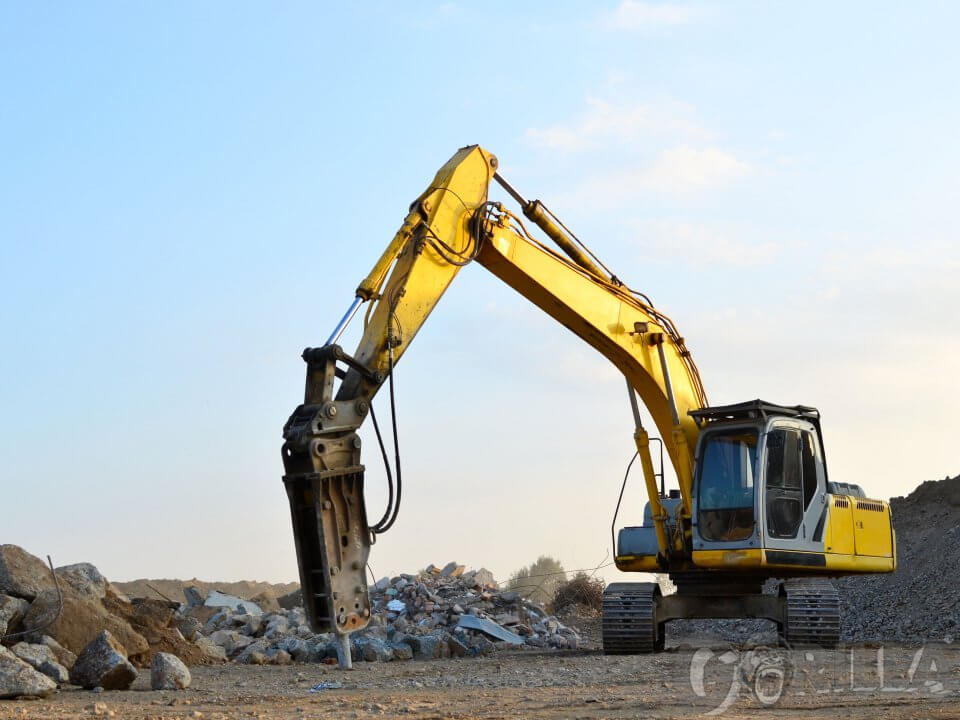
How Gorilla Hammers Contribute to Efficiency on Construction Sites
September 30, 2023
Gorilla Hammers’ Impact on Construction Industry
October 25, 2023At Gorilla Hammers, we understand that hydraulic hammers and breakers are powerful tools that require skilled operators for optimal performance and safety. In this blog, we delve into the significance of operator training in the operation of hydraulic hammers and breakers.
Safety First
Safety is paramount when it comes to operating hydraulic hammers. Proper training equips operators with the knowledge to handle these robust tools safely, reducing the risk of accidents and injuries on the worksite. Gorilla Hammers emphasizes comprehensive training programs that instill best practices for maintaining a secure working environment. The first thing that should be added to a carrier when a hydraulic hammer is installed is an excavator rock shield or rock screen of some kind to save the windshield and operator from flying rocks and debris. These can be heavy steel screens or grids, which can often give the operator a sense of vertigo while looking through the pattern, or lexan or plexiglass that can more easily be cut and mounted. However, lexan/plexiglass rock screens or rock shields need to be changed more often due to scratching, which can decrease excavator operator visibility due to glare.
Maximizing Equipment Efficiency
Well-trained operators are adept at maximizing the efficiency of hydraulic hammers. They understand the nuances of the equipment, ensuring that it operates at its peak performance. This not only enhances productivity but also prolongs the lifespan of the hydraulic hammer, reducing the need for frequent repairs and replacements. A hydraulic hammer operator should never cycle the hammer unless it is on the material, nor should the hydraulic breaker cycle time exceed twenty seconds in the same place. Further, every hydraulic hammer runs more efficiently and lasts the longest when it is placed perpendicular to the material to be broken.
Precision in Application
Hydraulic hammers are versatile tools used in various applications, from construction and demolition to mining and quarrying. Operator training ensures precision in the application of hydraulic hammers, allowing operators to tailor their approach based on the specific demands of the job. This precision contributes to the success and efficiency of the overall project.
Early Issue Identification
Skilled operators are trained to detect early signs of issues with hydraulic hammers. Timely identification of potential problems allows for proactive maintenance, which prevents costly breakdowns and minimizes downtime. Gorilla Hammers’ training programs emphasize the importance of routine inspections and the ability to recognize warning signs for prompt intervention. A good operator inspects the hoe ram for leaks and loose fasteners each time he gets out of the skid steer, backhoe, or excavator. Further, he or she knows that the hydraulic breakers lower bushing, tool retainers, and demolition tool, or tool bit, will last the longest when lubricated every two hours with hydraulic breaker chisel paste, hydraulic hammer lubricant, or grease, like Gorilla Goo Chisel Paste.
Compliance with Industry Standards
Operator training is essential for ensuring compliance with industry standards and regulations. Gorilla Hammers’ training programs align with safety guidelines and industry best practices, providing operators with the knowledge to operate hydraulic hammers in accordance with established standards. Compliance not only safeguards workers but also prevents legal issues for the company.
Enhanced Operator Confidence
Confidence is a crucial factor in the successful operation of hydraulic hammers. Well-trained operators are more confident in their abilities, leading to smoother and more efficient work processes. This confidence is vital for tackling challenging excavation, demolition, and utility projects and achieving optimal outcomes on the worksite.
Invest in Operator Training with Gorilla Hammers
As a Massachusetts-based hydraulic hammer and breaker company, Gorilla Hammers is dedicated to ensuring that hydraulic breaker operators are well-equipped with the skills and knowledge needed for safe and efficient hydraulic hammer operation. To invest in operator training and elevate the capabilities of your team, contact Gorilla Hammers today at (888) 814-6745.




